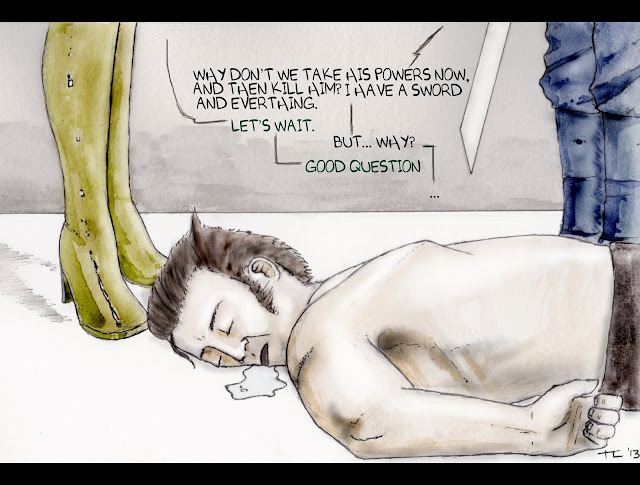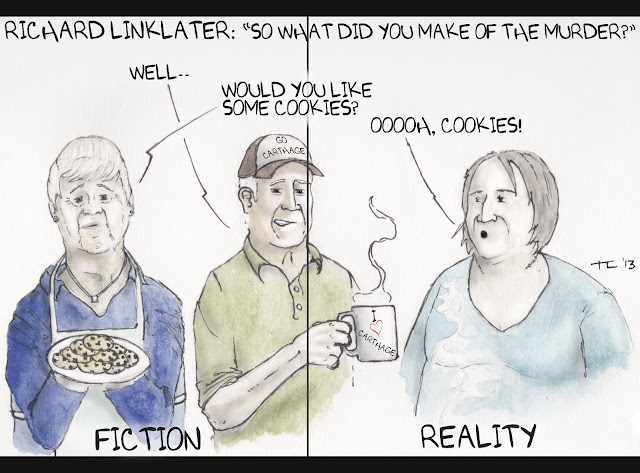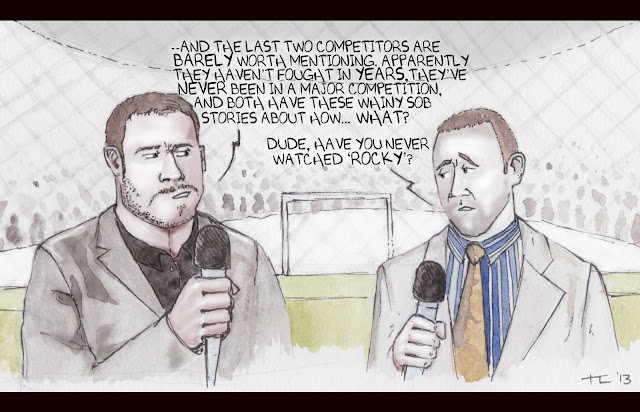Like Edgar Wright's previous films The World's End is another genre mash-up. It's part comedy, part action, and part sci-fi; roughly in that order of importance. So it's surprising that during the film's midsection it almost drops the comedy entirely and gives straight-drama a go. Gary and his friends have been carrying their disappointments with them for years, buried deep down; watching them bubble back up as the characters regress with each pint is easily the best thing about the film, but the more they open up the less it feels like a comedy, and since that's the backbone of the film, the less I laughed the less cohesive the film felt.
Wright calls The World's End the last of his 'Cornetto Trilogy' (the previous two being Hot Fuzz and Shaun of the Dead). It isn't. It just makes the film easier to promote. The main connecting tissue between each film - besides their cast - is a fondness for fence-based physical humour, men with arrested development issues, genre-mashing, pubs and, of course, cornetto ice cream. (Although the set-up and structure is so reminiscent of Shaun of the Dead that it's almost a warped remake.) Wright will make a fourth, a fifth, and sixth film dealing with much the same because that's his wheelhouse. That's what interests him. I don't have a problem with more of the same, so long at it's funnier. Much funnier.
Overall: 6/10
Minor Spoiler!:
(highlight to read)
The rather odd ending coda seems to exist solely to create a world in which Gary can revel in the past, refusing to change. Which feels like a get out clause; an overly elaborate way to avoid making him face up to his inability to change. Even if it had worked for me The World's End had tried on so many different genres by that point that when it switched again it had exhausted all the goodwill I had for it.









